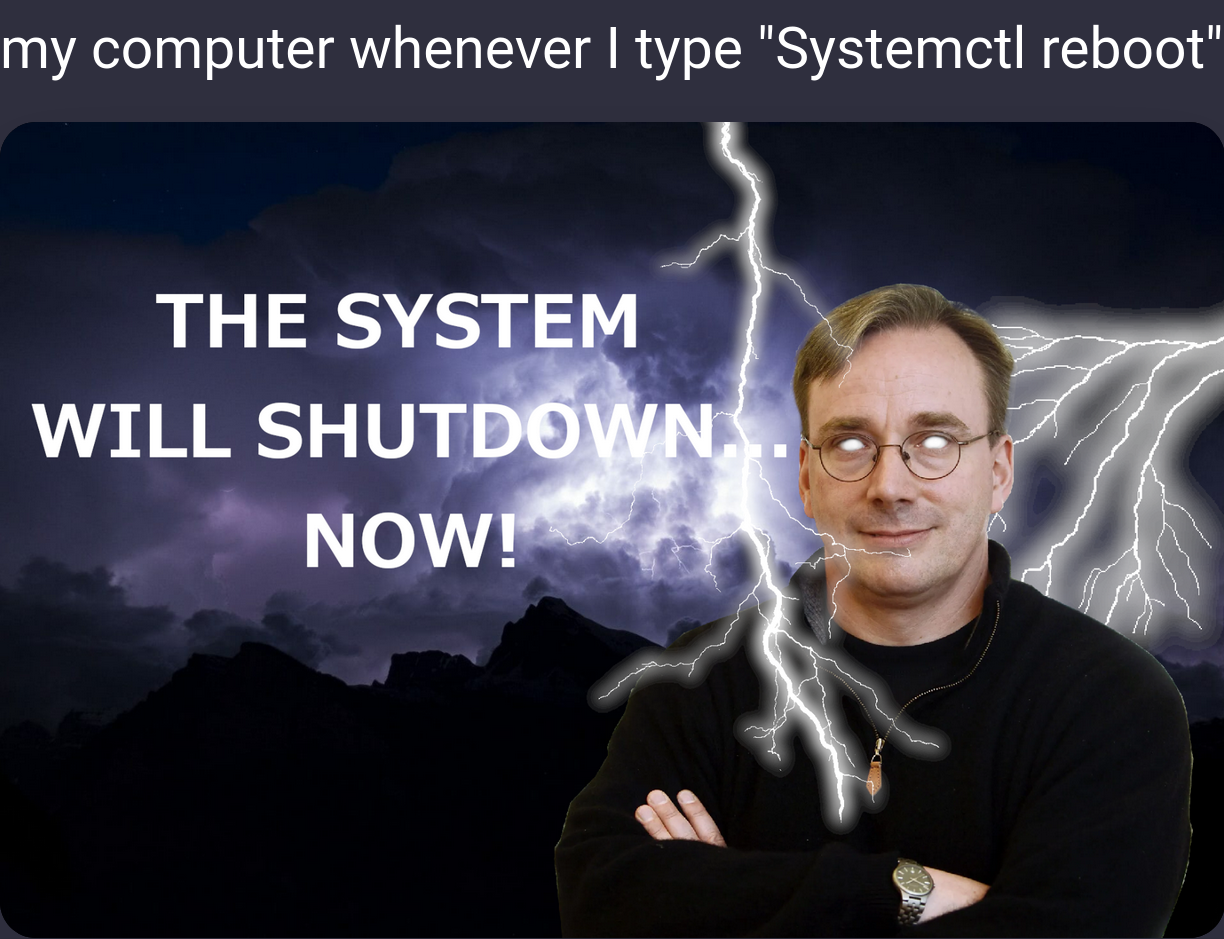this post was submitted on 07 Sep 2024
428 points (96.9% liked)
linuxmemes
21251 readers
1293 users here now
Hint: :q!
Sister communities:
- LemmyMemes: Memes
- LemmyShitpost: Anything and everything goes.
- RISA: Star Trek memes and shitposts
Community rules (click to expand)
1. Follow the site-wide rules
- Instance-wide TOS: https://legal.lemmy.world/tos/
- Lemmy code of conduct: https://join-lemmy.org/docs/code_of_conduct.html
2. Be civil
- Understand the difference between a joke and an insult.
- Do not harrass or attack members of the community for any reason.
- Leave remarks of "peasantry" to the PCMR community. If you dislike an OS/service/application, attack the thing you dislike, not the individuals who use it. Some people may not have a choice.
- Bigotry will not be tolerated.
- These rules are somewhat loosened when the subject is a public figure. Still, do not attack their person or incite harrassment.
3. Post Linux-related content
- Including Unix and BSD.
- Non-Linux content is acceptable as long as it makes a reference to Linux. For example, the poorly made mockery of
sudoin Windows. - No porn. Even if you watch it on a Linux machine.
4. No recent reposts
- Everybody uses Arch btw, can't quit Vim, and wants to interject for a moment. You can stop now.
Please report posts and comments that break these rules!
founded 1 year ago
MODERATORS
you are viewing a single comment's thread
view the rest of the comments
view the rest of the comments

Nowadays most Linux users seem to use
ssh user@host. When I was getting started, that didn't exist (or at least I was unaware of it) so I still frequently use the-lflag instead.Nothing wrong with it, just that at least I mostly encounter its use by experienced users.
OIC. Good to know in case I ever have to work on some old CentOS 5 box lying around ever again.
It also looks kinda proper, using that instead of the
@, so when making shell scripts, I might want to prefer this.https://youtu.be/PeWMwrdFBw0?t=144